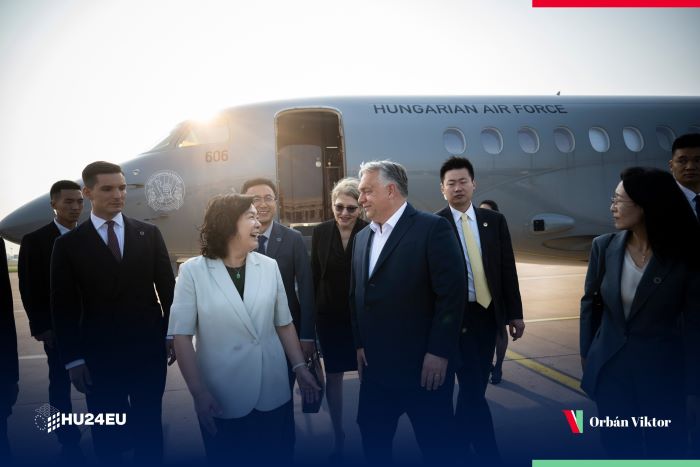“Peace Mission 3.0”: Hungarian Prime Minister Orban arrives in Beijing
Hungarian Prime Minister Viktor Orban arrived in Beijing on Monday, continuing his self-described "peace mission" that has already included stops in Kyiv and Moscow.


Hungarian Prime Minister Viktor Orban arrived in Beijing on 8 July to continue his “peace mission,” as he announced on X.
This visit marks the third stop in Orban’s recent diplomatic tour, following meetings in Kyiv and Moscow.
Reuters, citing Hungarian government spokesman Bertalan Havasi, reports that Orban is scheduled to meet with Chinese leader Xi Jinping. The Chinese Foreign Ministry has also confirmed the Hungarian politician’s visit, according to the news agency.
This Beijing trip follows Orban’s visit to Moscow on 5 July, where he discussed potential ways to resolve the war between Russia and Ukraine with Russian President Vladimir Putin. The Hungarian Prime Minister’s office stated that they “started negotiations about peace” during this meeting.
Just three days prior, on 2 July, Orban was in Kyiv for talks with Ukrainian President Volodymyr Zelenskyy. During this meeting, the Hungarian leader called for considering a ceasefire, arguing it could expedite peace negotiations.
“This could accelerate peace talks,” Orban reportedly said regarding a potential ceasefire. However, he also acknowledged the peace initiatives proposed by the Ukrainian president, noting that their implementation would require “a lot of time.”
Ukrainian President Volodymyr Zelenskyy has rejected a suggestion from the Hungarian Prime Minister to consider a ceasefire in Ukraine.
Orban’s diplomatic efforts in Kyiv, Moscow, and now Beijing appear to be part of a broader strategy to position Hungary as a mediator in the ongoing Russian war against Ukraine.
Read also:
- Orbán meets Zelenskyy in Kyiv while Hungarian FM calls Lavrov
- Ukraine rebukes Orbán’s Moscow visit: “No agreements without us”
- Orbán meets Putin: Ukraine and Russia’s positions “very far apart”
- ISW: Orbán seeks to shift West’s attention from supporting Ukraine to peace talks
You could close this page. Or you could join our community and help us produce more materials like this.
We keep our reporting open and accessible to everyone because we believe in the power of free information. This is why our small, cost-effective team depends on the support of readers like you to bring deliver timely news, quality analysis, and on-the-ground reports about Russia's war against Ukraine and Ukraine's struggle to build a democratic society.
A little bit goes a long way: for as little as the cost of one cup of coffee a month, you can help build bridges between Ukraine and the rest of the world, plus become a co-creator and vote for topics we should cover next. Become a patron or see other ways to support.



